Cosey Fanni Tutti's journey through art, porn and music
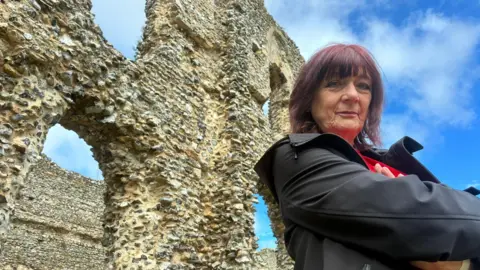 Matt Precey/BBC
Matt Precey/BBCIt is fitting that we meet a woman once described as a "wrecker of civilisation" in the grounds of a ruined priory.
Cosey Fanni Tutti, a founding member of the influential band Throbbing Gristle and radical performance artist, was given the title by Conservative MP Sir Nicholas Fairbairn in 1976 after an art exhibition, Prostitution, led to a tabloid furore and a House of Commons debate.
Prostitution, created by Tutti and her colleagues at the collective COUM Transmissions, showed at the Institute of Contemporary Arts in London and included pornographic images of her alongside used bandages and tampons.
"It has taken 50 years for [the exhibition] to be revisited and understood for what it was really trying to say," says the 73-year-old who lives near King's Lynn, Norfolk.
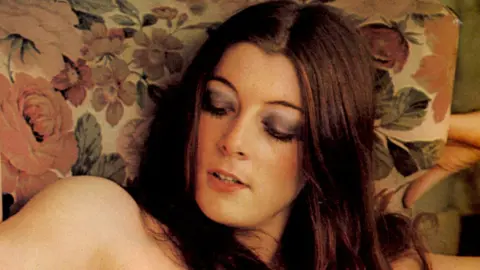 Cosey Fanni Tutti
Cosey Fanni TuttiTutti modelled for pornographic magazines in her work as a performance artist and pages from these publications featured in Prostitution, but were hidden away in a back room.
She says she "infiltrated" the porn industry to turn the tables on the consumers of these magazines and subvert the male gaze - the watcher now being watched.
"It's my point of view. It was my action," she says in the grounds of Castle Acre Priory, Norfolk.
She wanted the exhibition to "bring [porn] into a different kind of viewpoint and interpretation" and to "empower women to think that [the porn industry] is something we have to discuss, regarding how you think of it, as either subverting it or going along [with it]".
The porn industry in the 1970s involved "some of the most unlikely people", she says.
"I won't say who they are, but they were well known at the time. Famous names."
Exhibits from Prostitution are now on display at the Maxwell Graham Gallery in New York City until 28 June, which coincides with the release of her new album 2T2.
"I haven't been to see the exhibition because of the situation in America. I've no desire to go to America at the moment," she says.
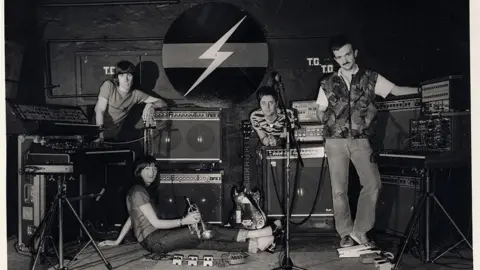 Cosey Fanni Tutti
Cosey Fanni TuttiThrobbing Gristle produced extraordinary - sometimes terrifying - music and are regarded as founders of the genre known as industrial, named after the record label they founded.
Active between 1975 and 1981, and again between 2004 and 2010, they have influenced acts including Soft Cell, Nine Inch Nails and Ministry.
Today, Tutti shares a converted chapel with her partner, frequent collaborator and former bandmate, Chris Carter.
The couple left London with their son in the early 1980s and bought the chapel at auction after spotting it in a local newspaper.
They had previously been living in squats, a culture that has declined to Tutti's regret.
"It's not just the people that want to live an alternative lifestyle and be creative and do music and art and so on, but it's also just impacting people that just want to live, have a family, just work and have a decent life," she says.
"What do you do when you can't afford the rent?"
The musicians now have a home studio where her new album was recorded.
She says 2T2 is infused with emotion; bereavement and illness informing tracks such as Stound, with its beats and spectral chanting.
"The last five years have been really difficult. I mean, personally, through illness and loss," she says.
Carter became seriously unwell with Covid which "refocused our world completely", she says, "and then I got ill with something else, which was indirectly related to Covid".
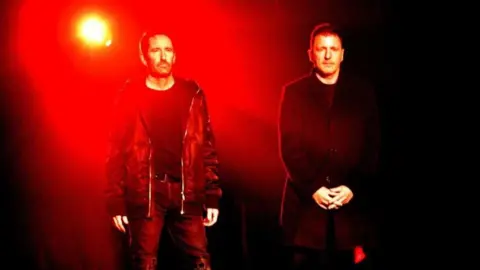 Getty Images
Getty ImagesCarter built some of the first sampling machines for the band to use, years before the technology became mainstream.
On 2T2 "there's some tracks on that that express that anger I felt about what had happened to [Carter and I] and to the world, actually", she says.
"It's a war zone isn't it?"
As she speaks, roaring jet fighters from a nearby airbase circle low overhead.
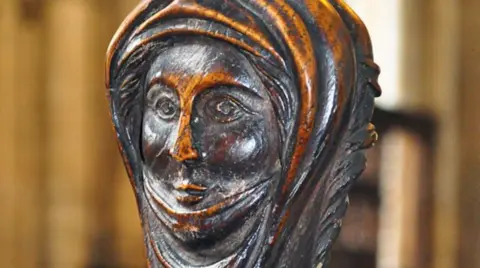
Following the publication of her memoir Art Sex Music in 2017, a documentary about Tutti's life is now in the works.
It will be directed by Caroline Catz , with whom she previously collaborated on the film Delia Derbyshire: The Myths and Legendary Tapes.
Derbyshire was a British electronic music pioneer who only belatedly received acclaim and acknowledgement after her death, such as for her arrangement of the Dr Who theme.
Sexism was the reason, says Tutti, that "she wasn't given the credit for what she had done".
"A bit like me with the Throbbing Gristle records, actually."
It was this identification with Derbyshire that led Tutti to write Re-Sisters in 2002, which also focused on another non-conformist woman, the medieval Norfolk mystic Margery Kempe.
Tutti says Kempe's story left her "gobsmacked".
"A woman from the 1300s who was resisting everything that was expected of a woman back then, and the more I looked into her, the more relevant her story was to both me and Delia."
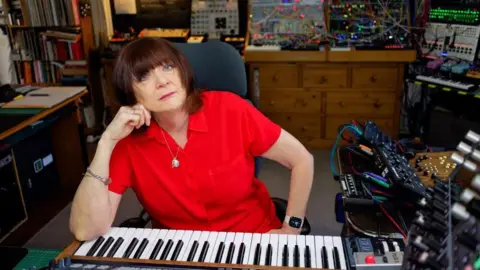 Chris Carter
Chris CarterGardening and reading is how this provocateur prefers to spend her time these days.
After giving up touring, the pioneer of avant-garde noise and electronica now enjoys the Norfolk countryside.
"I like peace and quiet," she says.
Cosey Fanni Tutti's album, 2T2, will be released by Conspiracy International on 13 June
Follow Norfolk news on BBC Sounds, Facebook, Instagram and X.
